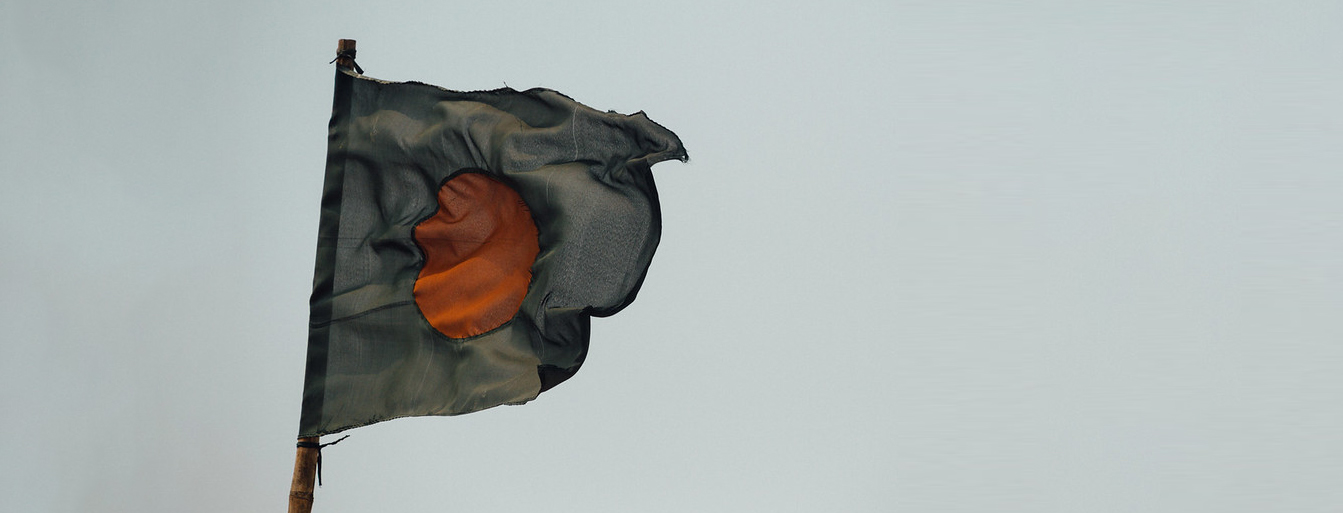
Today, Bangladesh celebrates its 50th anniversary of independence. Pivotal in deepening Bangladesh’s freedom and moving its democracy forward, students have played a key role in the political and social movements of the country since the 1950s. But in recent years, episodes of violence have marred the image of student politics in Bangladesh. With its program to promote tolerance, pluralism and peace among students, the International Republican Institute (IRI) is empowering youth to advance Bangladesh’s democracy through nonviolent activism.
Over the last half century, Bangladeshi students have served on the frontlines of the country’s continued fight for democracy. Students were in the vanguard of the movements for language rights in 1952, for independence from Pakistan two decades later and again for democracy in 1990. More recently, students have led protests to expand access to government jobs (2018), for road safety (2018) and against rape (2020). Moreover, Bangladesh’s political party student wings are widely considered a breeding ground for elected leaders.
However, in recent years, the dark side of Bangladesh’s student politics has become glaring: students and youth are often at the forefront of political violence, inter-party clashes and the suppression of protests. The most egregious case occurred in October 2019 when Bangladesh Chhattra League (BCL) members beat to death a university student in Dhaka for criticizing the government on Facebook. Prime Minister Sheikh Hasina condemned the killing and moved to change its leadership.
Student politics in Bangladesh have become increasingly dysfunctional. According to one study, over the last decade student groups from across the political spectrum were involved in 27 percent of all political violence in Bangladesh. In an IRI focus group study in 2020, youth participants described student wing activists from all parties as bullying, self-interested and violent.
In 2019, IRI began a program to reform student politics in Bangladesh. With in-person programs interrupted by COVID-19, IRI conducted five pilot online workshops with student wing members from the AL and the BNP on the importance of and strategies for social harmony, peaceful coexistence, conflict management, communication, team building and reconciliation.
IRI’s approach drew on USAID’s Positive Youth Development Framework, which aims to give youth the skills, confidence and opportunities to pursue change in their lives and communities.
In total, 137 students from BCL, Jatiotabadi Chhatra Dal (JCD) and other student wings joined the workshops from five districts in Bangladesh: Rajshahi, Bogra, Patuakhali, Barisal and Mymensingh. The workshops provided opportunities for student wing members to foster connections that bridge the ongoing political divide, build critical thinking skills and share perspectives.
Following the training, a BCL leader from Mymensingh Agriculture University said, “Irrespective of political identity, we need to utilize our knowledge and resources for the betterment of our country…this training has given me inspiration and confidence to mix with other political party student leaders in my community.”
Some workshop participants even promised to work across party lines to advance student needs after the session.
A JCD leader from Rajshahi Polytechnical University said, “After the workshop, I got the opportunity to meet my friends among political opponents and exchange ideas about creating more opportunities for general students in sports and cultural activities in our campus. Now, we are working together on this.”
A key goal of the workshops was to inspire student leaders to see their role as representing student interests before parochial partisan concerns.
Another JCD activist from Barisal University said, ‘’We are doing politics for the improvement of the campus environment. I will work together with the opposition if they work for the interest of the campus rather than their party’s interest…. I believe student politics must be for students’ interests.”
To build on the success, IRI this month began a new project aimed at elevating youth as agents of positive change. As part of the project, the Institute is expanding trainings on non-violence and pluralism, and bringing together student wing members and political party leaders for roundtable discussions on campus politics. IRI will also strengthen the leadership skills of non-partisan student activists, including women and individuals from marginalized communities, who support issue-based advocacy but are often underrepresented in campus politics.
Bangladesh’s history suggests that youth will be key catalysts for changing the country’s ossified and violent politics. Through its activities, IRI aims to shift the status quo of student politics toward non-violence and interparty dialogue. Promoting positive youth development in the political sphere requires new perspectives and ideas that transform not just how students see themselves, but also how parties see students.
As Bangladesh celebrates its 50th Independence Day, now is the time to rethink, reform and rejuvenate student politics.
Top